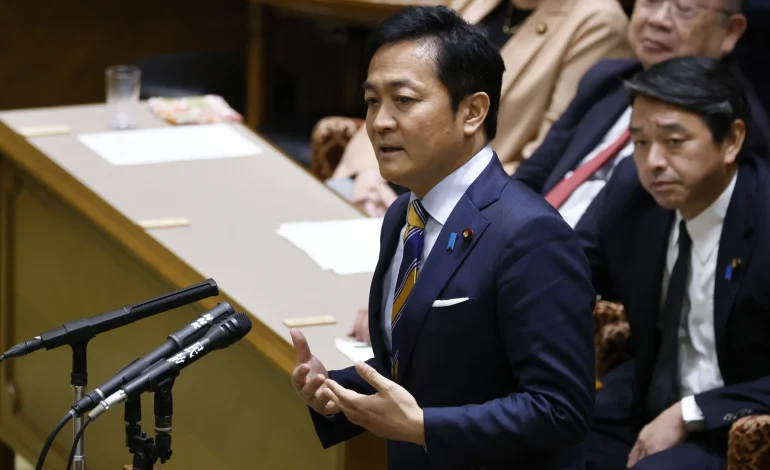Japanese Prime Minister Shigeru Ishiba is facing pressure to secure a majority in the upcoming vote after his ruling coalition suffered a significant loss in Sunday’s election. His eyes are now set on the Democratic Party for the People (DPP), a smaller opposition party whose support could be crucial.
The DPP, led by Yuichiro Tamaki, quadrupled its presence in parliament after campaigning on a policy of increasing tax-free income allowances for part-time workers. This policy, which could offer a significant tax break for part-time workers, has caught the attention of Prime Minister Ishiba, according to a report by Bloomberg.
The DPP’s 28 seats would give the Liberal Democratic Party (LDP) and its coalition partner Komeito the majority they need to pass legislation. However, the prospect of offering this tax break comes at a cost: a loss of revenue for a government already grappling with the biggest debt load in the developed world.
Tamaki proposes raising the ceiling on tax-free annual income for part-time workers from ¥1.03 million to ¥1.78 million. He argues this would encourage part-time staff to work longer hours, ultimately contributing to the nation’s labor shortage and raising household incomes.
While this policy could be a win for the economy, it would also reduce tax revenue for a government with an existing extra budget in the pipeline.
The Yomiuri newspaper reported that Ishiba plans to approach the DPP to form a “partial coalition.” However, Tamaki has maintained that he does not intend to enter a coalition with the LDP, though he is open to negotiating on policy matters. He also intends to put forward his own name in the vote for prime minister, which is scheduled for November 11.
Despite the potential financial implications, offering a tax break might be a more palatable option for Ishiba than other policies proposed by other opposition parties. The Constitutional Democratic Party, while winning the most seats among opposition parties, has ruled out a grand coalition with the LDP.
The Japan Innovation Party, with demands for a sales tax set at 8%, the transformation of Osaka into a unified metropolitan area, and increased responsibilities for the Bank of Japan, presents a much more challenging proposition.
The DPP’s refusal to meet with the Constitutional Democratic Party further complicates the political landscape, suggesting the DPP might be leaning towards collaborating with Ishiba.









